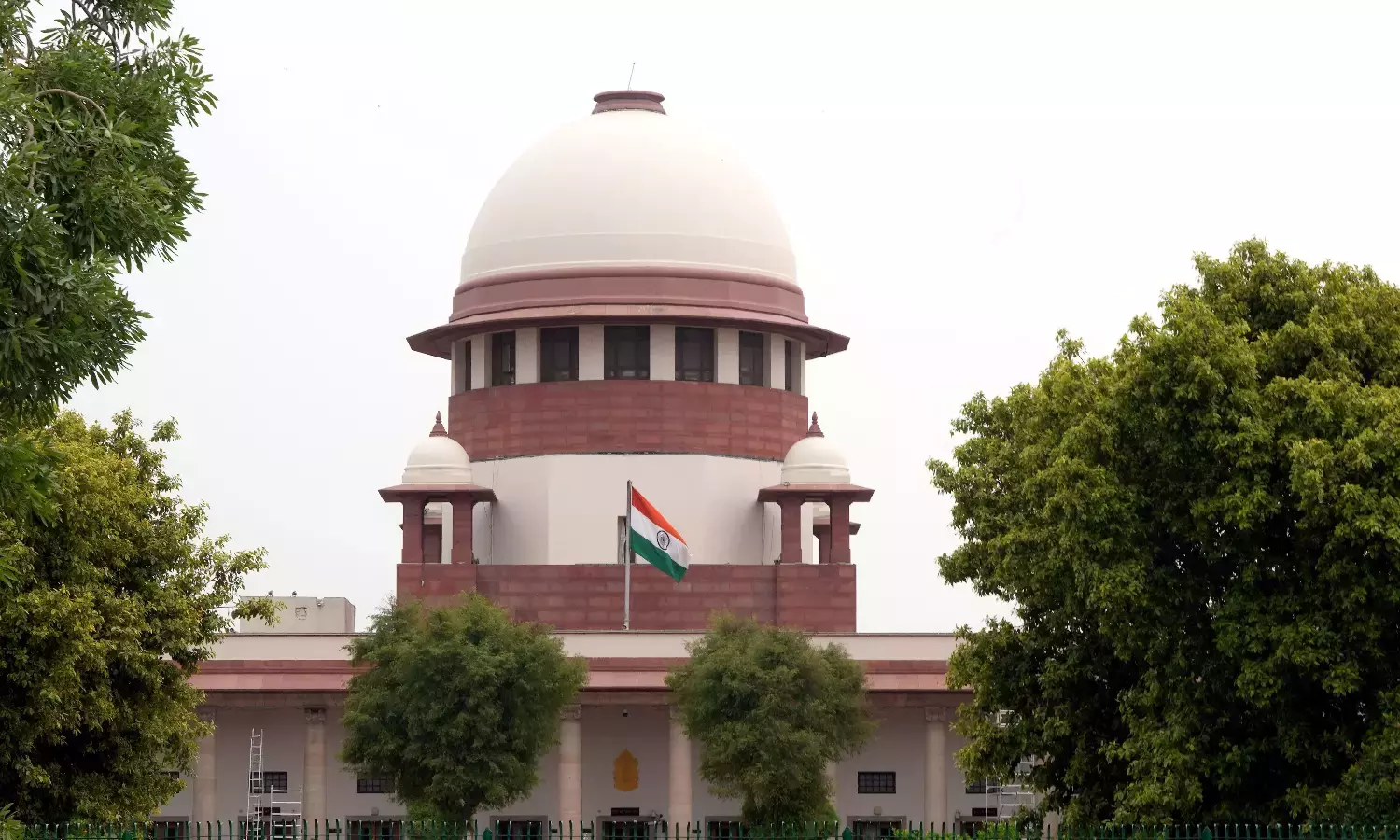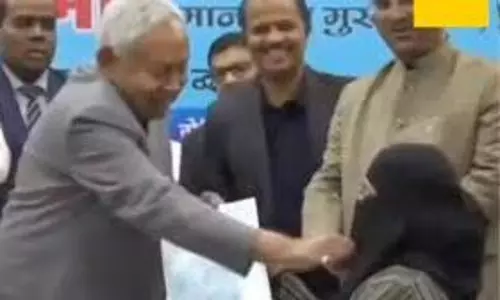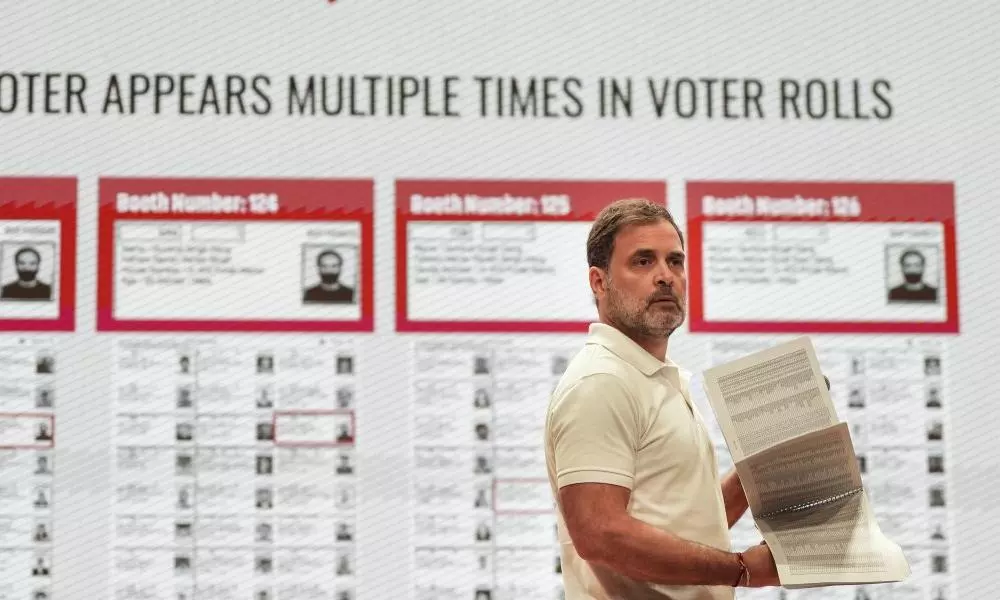
Partner in crime? EC on the defensive after Rahul Gandhi’s vote theft expose
text_fieldsAlleging large-scale electoral fraud executed with the complicity of the Election Commission, Congress leader Rahul Gandhi has levelled serious accusations against the apex poll body for enabling the ruling BJP to manipulate voter rolls in a bid to retain power, with fresh revelations focused on the Mahadevapura Assembly segment under the Bangalore Central Lok Sabha seat.
Gandhi’s latest exposé reveals extensive discrepancies in electoral rolls, which he claims were deliberately engineered by the Election Commission to favour the BJP, pointing to a systemic decay of democratic principles in India.
Gandhi’s investigation centres around the Mahadevapura constituency, the only Assembly segment within Bangalore Central where the BJP secured an overwhelming lead during the 2024 Lok Sabha elections, despite trailing in the remaining seven segments.
According to Congress data compiled over six months, the BJP secured a lead of 1,14,046 votes in Mahadevapura alone, contributing significantly to its overall victory margin of 32,707 votes in the Bangalore Central seat. Gandhi claims that the lead was manufactured through fraudulent electoral practices, backed by a detailed analysis of official electoral rolls published by the Election Commission.
The Congress team’s verification exercise revealed that 11,965 voters were duplicated in the constituency, while 40,009 voters were registered under fake or invalid addresses. The findings also include 10,452 bulk voters registered under single addresses, 4,132 electors with invalid photographs, and 33,692 cases where Form 6, a form used to enrol new voters, was allegedly misused to add ineligible names to the rolls.
In one of the most damning instances, 68 people were shown to be registered at a brewery named “153 Biere Club”, while none of them could be located during the Congress team’s physical verification of the address.
These figures, Gandhi alleged, point to the theft of approximately 1,00,250 votes in Mahadevapura alone, which he termed as a model of systematic vote theft. He also cited specific instances such as 80 voters being shown at a single address and 46 voters being registered to a one-room house.
Photographic evidence presented during his press briefing appeared to confirm that many of the listed addresses were either non-existent or did not house any of the registered voters.
The scale and method of manipulation, according to Gandhi, suggest a broader electoral subversion plan that goes beyond one constituency or one election. He linked the Mahadevapura incident to a growing pattern of electoral irregularities seen in other states, notably Maharashtra and Haryana, where Congress had expected better performances based on internal surveys and Lok Sabha results, but was ultimately defeated in state polls.
He argued that these instances reinforce the growing perception that elections are being choreographed rather than contested freely, and the Election Commission, rather than acting as a neutral umpire, is instead operating as an agent of the ruling party.
The Congress leader insisted that the EC’s refusal to provide access to CCTV footage of polling booths and electronic data from previous elections was an attempt to cover up the fraud, as making this data public would allow the opposition to expose similar irregularities in other constituencies.
He warned that if the EC continues to deny access to such evidence and fails to investigate the allegations thoroughly, it would become complicit in destroying the electoral fabric of the nation.
While the EC responded by asking Gandhi to submit a signed declaration under the Registration of Electors Rules, 1960, along with specific names of voters he claimed were wrongfully included or excluded, it did not refute the accuracy of the data he presented.
Instead, the Commission’s defensive posture, including its previous refusal to release polling booth footage and its decision to bar political parties from accessing certain electoral data, has raised further concerns about its impartiality.
Gandhi warned that this manipulation of electoral rolls is not merely an administrative lapse but an orchestrated attack on the foundations of the Indian Constitution, which upholds the principle of one person, one vote.
He underscored that the BJP won 25 Lok Sabha seats with margins under 33,000 votes—margins small enough to be influenced through the kind of voter fraud allegedly documented in Mahadevapura. By enabling such discrepancies, Gandhi suggested that the Election Commission is directly aiding the BJP in circumventing the democratic process and maintaining its hold on power through illegitimate means.
























